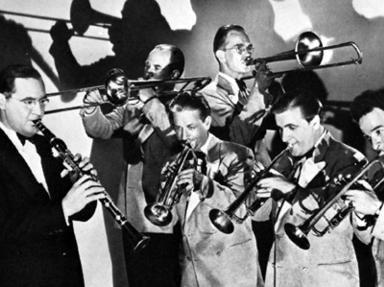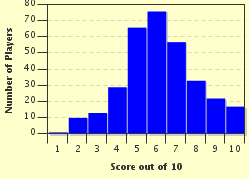Quiz Answer Key and Fun Facts
1. What man, who was born simply as "J.R.", popularized these lyrics?
"The taste of love is sweet
when two fiery hearts meet;
I believed you like a child
Oh, but the fire went wild..."
2. Cab Calloway, The Andrew Sisters, Glen Miller, Ray Charles and probably countless others have sung this line many times, but what song were they singing?
"You leave the Pennsylvania station 'bout a quarter to four;
Read a magazine and then you're in Baltimore;
Dinner in the diner; nothing could be finer,
Than to have your ham and eggs in Carolina!"
3. "Froggie Went A'Courtin'" is a well-known "children's song", but what country is the origin of this timeless piece?
4. "Johnny, I Hardly Knew Ye"
"While goin' the road to sweet Athy, hurroo, hurroo
While goin' the road to sweet Athy, hurroo, hurroo
While goin' the road to sweet Athy
A stick in me hand and a drop in me eye
A doleful damsel I heard cry,
Johnny I hardly knew ye.
With your drums and guns and drums and guns, hurroo, hurroo
With your drums and guns and drums and guns, hurroo, hurroo
With your drums and guns and drums and guns
The enemy nearly slew ye
Oh my darling dear, Ye look so queer
Johnny I hardly knew ye."
Unfamiliar, huh?
What American Civil War song used the same melody as this old Irish anti-war ballad?
5. "Daisy, Daisy,
Give me your answer do!
I'm half crazy,
All for the love of you!
It won't be a stylish marriage,
I can't afford a carriage
But you'll look sweet upon the seat
Of a bicycle built for two."
What is the title of this song?
6. Which war is responsible for this little ditty rising to a place of prominence and popularity?
"I just got word from a guy who heard
From the guy next door to me
The girl he met just loves to pet
And it fits you to a 'T'
So, don't sit under the apple tree with anyone else but me
'Til I come marchin' home?"
7. Abraham Lincoln liked this particular tune that was first performed in the 1840s, calling it "that buzzing song".
It is said that he even asked for it to be played at Gettysburg.
What song was it that "Honest Abe" liked so well, according to the American poet, Carl Sandburg?
8. Well...
This is the oldest official song in the United States military, dating back to a copyright date of 19 August 1891.
I had no idea. Did you?
9. "I Love You Truly" was a number one hit as a parlor song. It was also the first song written by a woman, (Carrie Jacobs Bond) to sell one million copies of sheet music.
It was popularized by Elsie Baker and was later sung by such artists as Pat Boone, Victor Borge, Bing Crosby, Connie Francis, The Ink Spots, Liberace, Guy Lombardo, and The Platters.
In what year did it become a number one hit for Elsie Baker?
10. The lyrics to "Moon River", by legendary songwriter Johnny Mercer, with a music score provided by Henry Mancini, were featured and sung by Audrey Hepburn in which 1961 movie that starred her and George Peppard?
Source: Author
logcrawler
This quiz was reviewed by FunTrivia editor
agony before going online.
Any errors found in FunTrivia content are routinely corrected through our feedback system.


